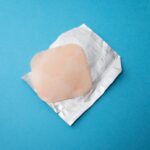Summer is finally here, and it’s time to enjoy the sun, outdoor activities, and vacations. However, it’s also essential to maintain a healthy immune system, which is your body’s defense mechanism against harmful viruses, bacteria, and other pathogens.
A weak immune system can leave you susceptible to illnesses, making it difficult to enjoy your summer to the fullest. Fortunately, there are several ways to boost your immune system naturally. This article will provide you with tips and immune boost supplements to help you stay healthy and vibrant throughout the season.
1. Eat a Balanced Diet
One of the most effective ways to keep your immune system in top shape is by eating a well-balanced diet. This means consuming various foods, including fruits, vegetables, whole grains, lean proteins, and healthy fats. These foods provide essential nutrients your body needs to function optimally, including vitamins, minerals, antioxidants, and probiotics.
Incorporate Immune-Boosting Foods
Some foods are known for their immune-boosting properties, which can help strengthen your defenses. These include:
- Citrus fruits (e.g., oranges, grapefruits, lemons)
- Berries (e.g., strawberries, blueberries, raspberries)
- Leafy greens (e.g., spinach, kale, Swiss chard)
- Probiotic-rich foods (e.g., yogurt, kefir, sauerkraut)
- Nuts and seeds (e.g., almonds, sunflower seeds, pumpkin seeds)
- Fatty fish (e.g., salmon, mackerel, sardines)
- Green tea
Avoid Excessive Sugar and Processed Foods
Consuming too much sugar and processed foods can weaken your immune system and make you more susceptible to infections. Limit your intake of sugary beverages, desserts, and packaged snacks, and opt for more natural, whole foods instead.
Consider Supplements
Sometimes, even with a healthy lifestyle, our immune systems need an extra boost. Taking an immune boost supplement can provide additional support for your immune system. Look for supplements that contain vitamins C, D, and E, as well as minerals like zinc and selenium. Be sure to talk with your doctor first before starting any new supplement regimen.
2. Stay Hydrated
Proper hydration is essential for overall health, including the optimal functioning of your immune system. Water helps transport nutrients and oxygen to your cells, flush out toxins, and support the production of lymph, a fluid that circulates throughout your body and plays a crucial role in immunity.
Drink Adequate Amounts of Water
As a general rule, drink at least eight 8-ounce glasses of water per day. However, your needs may vary depending on your age, activity level, and climate. Pay attention to your body’s thirst cues and adjust your water intake accordingly.
Choose Hydrating Foods
In addition to drinking water, you can also stay hydrated by consuming water-rich foods like fruits, vegetables, and soups. These foods not only provide hydration but also supply essential nutrients for a healthy immune system.
3. Get Enough Sleep
Sleep is crucial for a robust immune system, as it’s during this time that your body repairs itself and regenerates immune cells. Research has shown that people who don’t get enough sleep are more prone to catching colds and other infections. It is recommended that adults should aim to get a minimum of seven hours of sleep per night. Meanwhile, teenagers should strive for 8-10 hours, and children may require up to 14 hours of sleep.
Establish a Regular Sleep Schedule
Make an effort to sleep and rise at the same hours daily, including on weekends. This aids in maintaining your body’s natural rhythm and can enhance the quality of your sleep.
Create a Sleep-Friendly Environment
Always keep your bedroom cool, dark, quiet, and conducive to sleep. You can also use relaxation techniques such as deep breathing, progressive muscle relaxation, or meditation to help you unwind before bedtime.
4. Exercise Regularly
Physical activity has numerous benefits for your immune system, including improving circulation, reducing inflammation, and promoting the production of immune cells.
For starters, aim for at least 30 minutes of moderate-intensity exercise most days of the week Moderate-intensity exercise includes activities such as brisk walking, swimming, or cycling. It is best to incorporate a mix of cardiovascular, strength training, and flexibility exercises into your routine.
Secondly, choose activities you enjoy. Exercise should be something to be excited about, not dislike or dread. Find activities you enjoy and are more likely to stick with, such as dancing, yoga, or team sports.
Thirdly, start slow and gradually increase intensity. If you’re new to exercise or haven’t been active for a while, start with shorter, less intense workouts and progressively increase the duration and intensity as your fitness level improves. This will help prevent injury and ensure you don’t become overwhelmed or discouraged.
Lastly, listen to your body. Always be mindful of how your body feels while working out. If you experience pain, shortness of breath, or any other unusual symptoms, stop the activity, and consult a healthcare professional if necessary.
Conclusion
Having a robust immune system is essential for optimal health and wellness. Adopting a healthy lifestyle that includes a balanced diet, immune boost supplements, adequate sleep, regular exercise, and effective stress management can support your immune system and reduce your risk of illness and infection.
QEStrong provides the essential information to safeguard your health, allowing you to maintain or improve your mental and physical wellness. We believe in the power of organic, natural, and quantum energy sources. Explore our range of immune boost supplements now!








